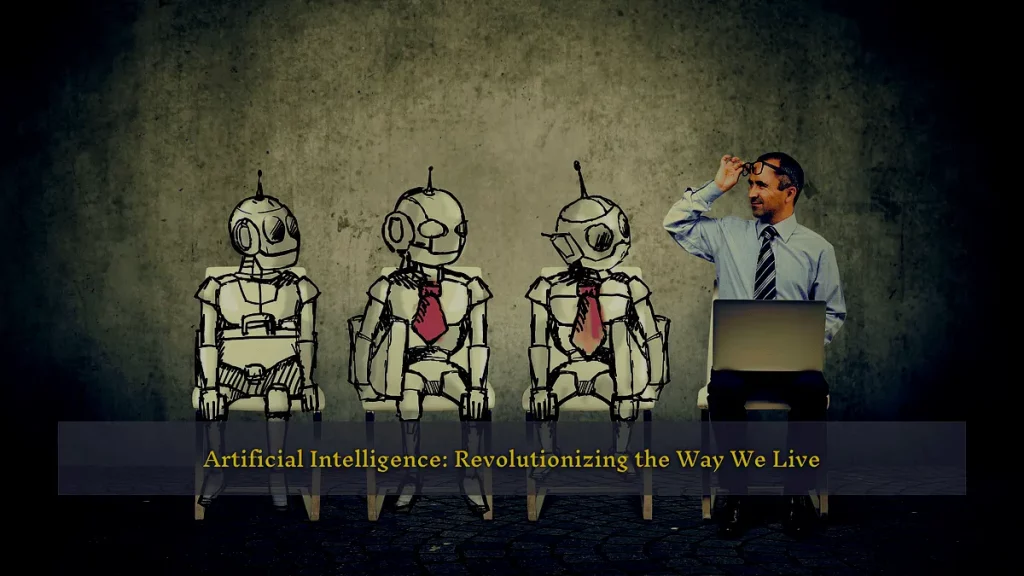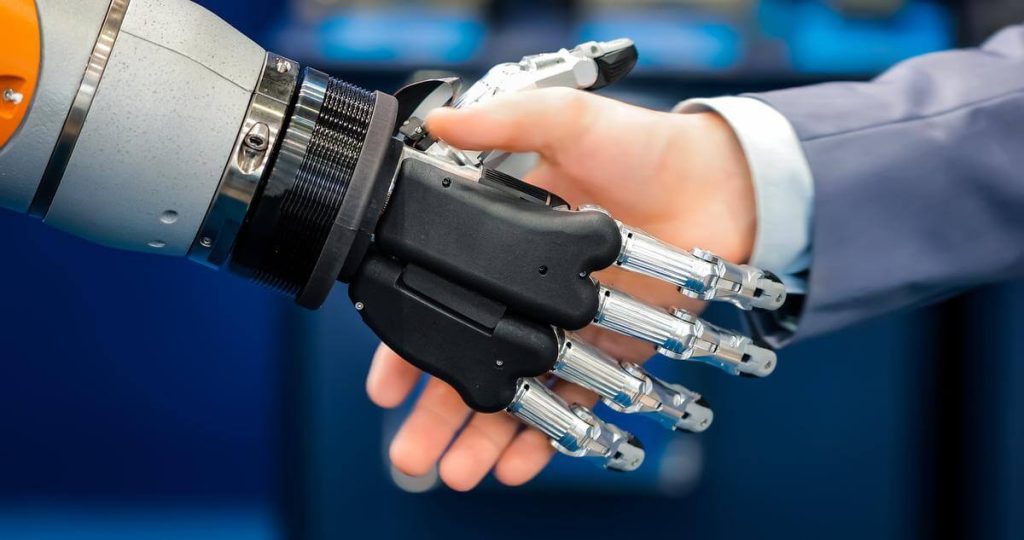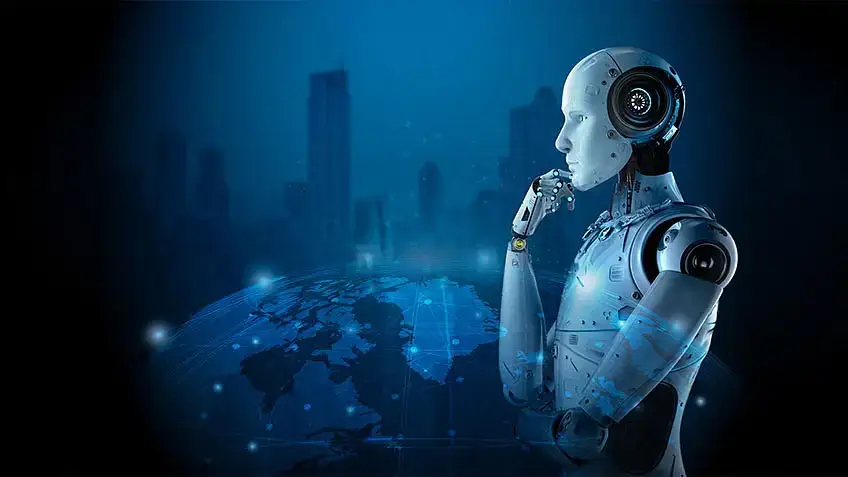Artificial intelligence (AI) has become a disruptive force in the field of technology development, transforming how we operate in a variety of industries. While there has been much discussion about how AI may be used to improve efficiency and automate procedures, there is one area that has received little attention: maximizing human potential.

In this ground-breaking blog article, we explore the unexplored facets of AI and demonstrate how it is reshaping industries by enhancing human capabilities and encouraging new paths for development and innovation.
5 ways AI is Revolutionizing the Way We Work
1.Ai and Automation
Artificial Intelligence (AI) and automation have become transformative forces in the rapidly changing world of technology, transforming industries and revolutionizing how we work. Automation and AI work in concert to achieve previously unattainable levels of effectiveness, precision, and invention. In this blog article, we examine how the potent union of AI and automation is reshaping numerous industries, streamlining workflows, and laying the foundation for increased productivity and innovation in the future.
How AI and Automation are revolutionizing the work space in the world
- Intelligent Process Automation
- Enhanced Decision-Making
- Personalized Customer Experiences
- Intelligent Insights and Predictive Analytics
- Empowering Innovation and Creativity
As we enter this transformative era, it is crucial to take advantage of AI and automation’s synergy to build a future where humans and robots coexist peacefully, enabling us to achieve previously unheard-of levels of achievement and progress.
Get TikTok SEO Cheat here
2. Ai and Workflows
Workflow optimization is essential for businesses to maintain competitiveness and achieve operational excellence in today’s fast-paced, data-driven world. Artificial intelligence (AI) has evolved as a game-changing technology that automates work processes, revolutionizes workflows, and allows for intelligent decision-making. In this blog article, we explore the relationship between AI and workflows, examining how AI improves productivity, streamlines procedures, and gives businesses the ability to realize their full potential.
How AI improves work flows
- Intelligent Task Automation
- Workflow Optimization and Predictive Analytics
- Intelligent Document Processing
- Workflow Personalization and Adaptive Systems
- Intelligent Workflow Collaboration
A company’s ability to streamline operations, take use of data insights, and maximize the potential of its staff is increased by adopting AI. As AI develops, it will transform workflows, revolutionize industries, and open the door to a time where intelligent systems and human expertise coexist peaceably, fostering creativity and achieving greater heights of accomplishment.

3. AI and Data
AI and data are intimately connected and have a symbiotic relationship. AI systems are powered by data, which gives them the ability to learn, decide, and produce insights. In addition, AI technologies are essential for deriving value from data, maximizing its potential, and delivering useful information.
Few key points about the relationship between AI and data
- Data as the foundation
- Data collection and preprocessing
- Training AI models
- Data-driven decision making
- Feedback loop and continuous learning
- Ethical considerations
Data gives AI systems the foundation they need to learn and make wise decisions, while AI technologies unleash the value of data by analyzing, interpreting, and drawing conclusions from it.
4. Ai and solving Challenges
Even though artificial intelligence (AI) has a lot of potential and promise, there are a number of issues that must be resolved before it can be deployed responsibly and successfully.
The following are some of the main obstacles that AI faces:
- Data quality and availability
- Human-AI collaboration and job displacement
- Adversarial attacks and security
- Scalability and resource requirements
- Ethical considerations
- Transparency and interpretability
- Regulatory and legal frameworks
It takes a multidisciplinary strategy to address these issues, involving cooperation between academics, public officials, business leaders, and the general public. It entails investing in data collecting and administration, encouraging multidisciplinary research, and developing responsible governance frameworks for AI development and deployment. It also requires designing AI systems with an emphasis on ethics, transparency, and justice.
5. Ai and Enhancing Human Productivity
The potential for artificial intelligence (AI) to significantly increase human productivity across numerous industries and fields is great. AI technologies can help people and organizations work more successfully and efficiently by automating repetitive tasks, enhancing human talents, and offering intelligent insights.
- Automation of repetitive tasks
- Intelligent assistance and decision support
- Improved data analysis and pattern recognition
- Personalized experiences and recommendations
- Intelligent process optimization
- Collaborative and augmented intelligence
- Continuous learning and skill development
Although AI has the potential to increase productivity, it is crucial to ensure its ethical and responsible use. To preserve control and reduce potential hazards, emphasis should be placed on human supervision, openness, and accountability. The secret to exploiting the advantages of AI and utilizing its powers to increase human productivity is striking the correct balance between automation and human interaction.

6. Ai and Outlook
Automation of regular tasks, the ability to make data-driven decisions, and improved collaboration are just a few of the ways AI is changing the workplace. Organizations can leverage the advantages of this technology while reducing the dangers by knowing its potential and the difficulties associated with its deployment. AI will undoubtedly play a larger and larger role in determining how work will be done in the future as it develops and becomes more sophisticated.
Conclusion
Organizations now face the problem of efficiently managing and deriving insightful data from massive amounts of data in the age of big data. The handling, analysis, and use of data have all been revolutionized by artificial intelligence (AI), which has emerged as a game-changer. In this blog article, we examine the mutually beneficial relationship between artificial intelligence (AI) and data, demonstrating how AI alters data management, improves analytical skills, and opens up new avenues for innovation and growth.
Read also:
- How to get GTB token
- Does SSL Certificate Boost SEO Ranking? – Google
- How to Quickly Improve Your Digital Marketing ROI with CRO
- How To Get Glo 7GB For 1500
- The 10 Best Free Email Marketing Tools In 2023
- How To Leverage TikTok Marketing For Business Growth in Nigeria (2023)
References: